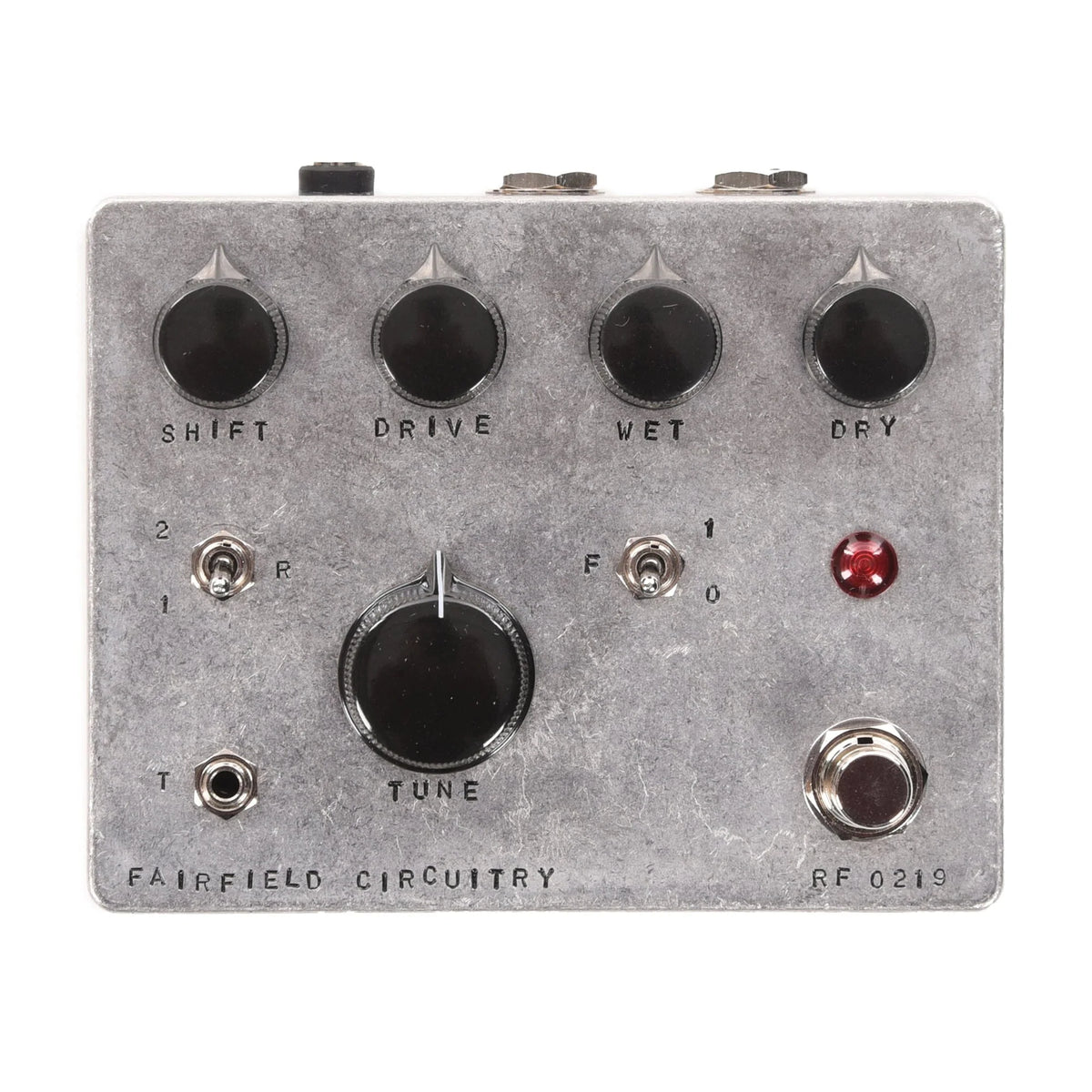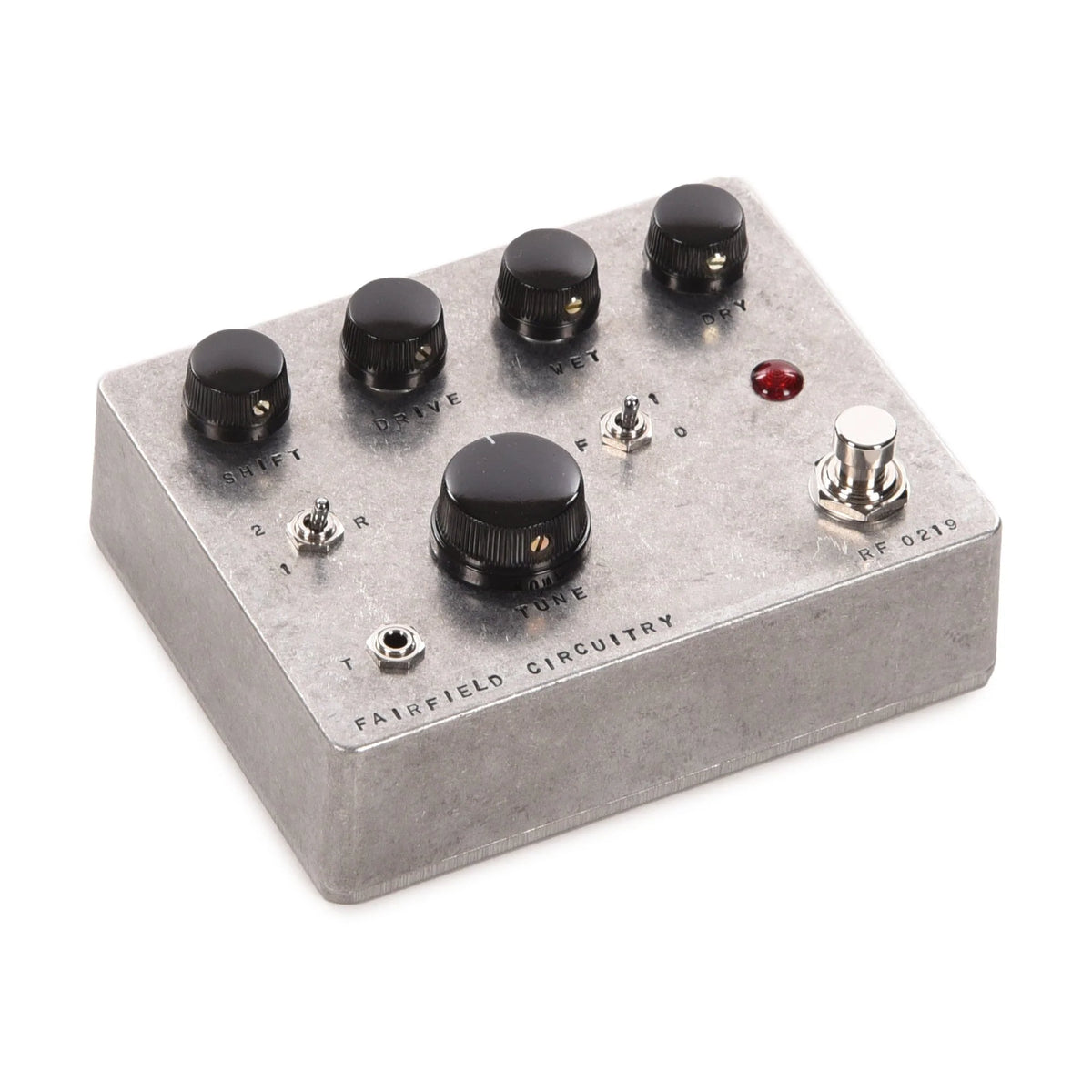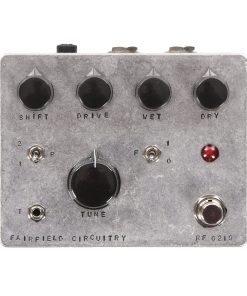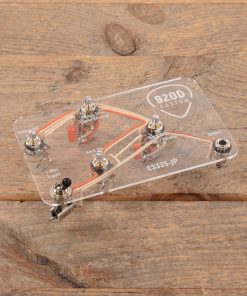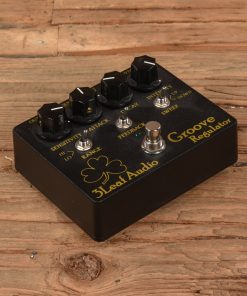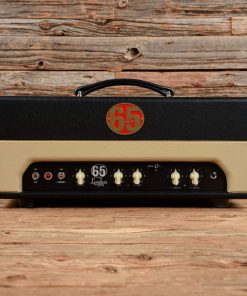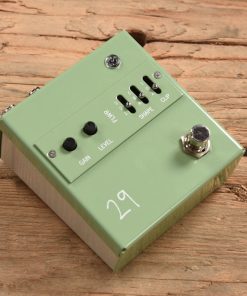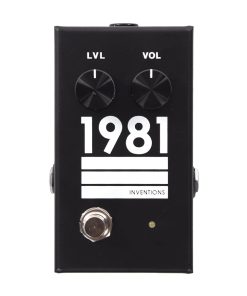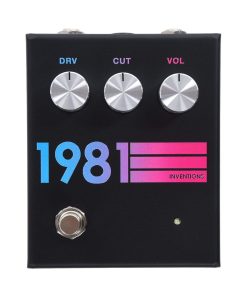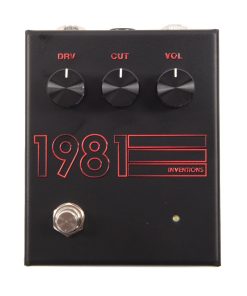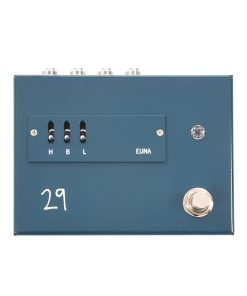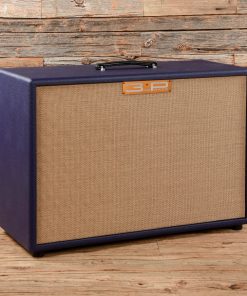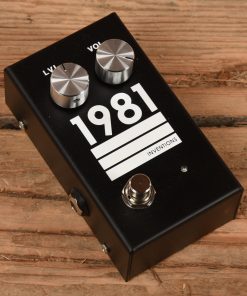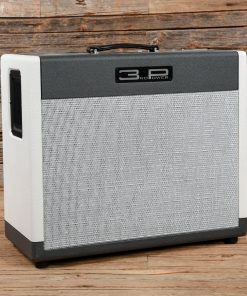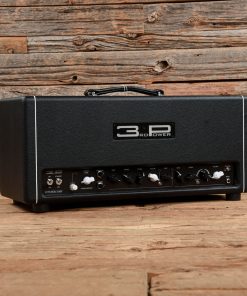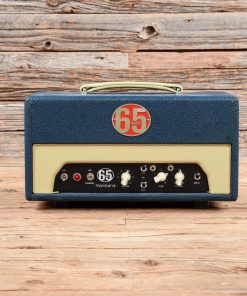Fairfield Circuitry Roger That FM Modulator/Demodulator Pedal Fairfield Circuitry
$ 299,00 $ 119,60
Inspired by Roger Grant’s idea to mimic loss of fm radio signal through the use of a simplified fm modulator/demodulator scheme. As a young child, I would hide under the table when Roger came around. Later, when I first started in electronics, he gave me a bunch of parts, tools and bench equipment. Controls interfere with demodulation accuracy resulting in familiar yet unexpected signal degradation and noise. Decoherence at its finest.
TUNE:
Like turning the dial on your receiver, the TUNE parameter sweeps through a wide variety of sounds. From subtle artifacts, to extreme textures, noise and distortion. Summmed with CV at T input.
SHIFT:
Shifts the accuracy of tracking the incoming modulated signal. Sometimes acts as a filter. Highly dependent on TUNE.
DRIVE:
Controls the input level, from clean to dirty. Pushing the DRIVE control generates extreme non-linearities from the modulator/demodulator circuit. Affects both the wet and dry signals.
WET:
Amount of wet signal at the output.
DRY:
Amount of dry signal at the output.
R:
Preset range of the TUNE parameter:
1 – normal
2 – extended
F:
Apply voice filter ~(300Hz-3kHz) to wet signal:
0 – filter off
1 – filter on
CONNECTIONS:
IN: 1/4″ Instrument input
OUT: 1/4″ Output
T:1/8″ CV input for TUNE
9V: 2.1mm 9VDC centre-negative tip, >30 mA
NOTES ON INTERACTIVITY:
- The TUNE, SHIFT, DRIVE and RANGE controls are highly interactive.
- The higher the DRIVE, the more artifacts will be generated.
- TUNE is probably the widest, most non-linear, finest control ever included in our products. Micro adjustments here will drastically change the result of the demodulation.
- TUNE and SHIFT are mutually dependant, almost like they are the same control. By tweaking both, it almost seems like there is endless varieties of sounds.
- The RANGE switch shifts the whole palette of possibilities.
- Wet signal path is intentionally out of phase allowing for special interactivity between WET, DRY and FILTER.
- If the original signal is still present on the wet side, adding dry signal will cancel it out leaving only the distortionartifacts.
- If voice filter is activated in these same conditions, the result is a kind of mid-scoop instead of the usual bandpass.
FEATURES AND USES:
- JFET pre-amp
- CV on TUNE
- RFI/EMI approximator
- FM/AM radio quality reducer
- volatile and unpredictable distortion •noise, pop, crackle and squeal generator
- impress your friends
TECHNICALS:
- true bypass
- dimensions 4.7″ x 3.8″ x 1.9″
- input impedance 1MΩ
- output impedance 1kΩ
- power supply 9 – 9.6VDC
- current draw 30mA @ 9.6VDC
Fast Shipping with Professional Packaging
We offer a wide range of shipping options due to our long-standing partnerships with UPS, FedEx and DHL. Our warehouse staff are trained to pack your goods exactly according to the specifications we offer. Before shipping the goods are thoroughly examined and secured. Every day, we send thousands of packages to clients from all over the world. Our determination to be the biggest online retailer in the world is shown by this. The warehouses are located in Europe as much as they are in USA.
Note: Orders with more than one product will be assigned a distinct processing time, dependent on the particular item.
Before shipping, we will examine the items ordered thoroughly before sending the items. The majority of orders are shipped within 48 hrs. The delivery estimate is between 3-7 days.
Returns
The stock is constantly changing and cannot be fully controlled by us because of the involvement of several parties including the factory and our warehouse. Stock levels can fluctuate at any given time. Please be aware that it is possible that your order could become unavailable even after you've placed your order.
Our policy is valid for a period of 30 days. If 30 days have passed by since your purchase however, we're unable to give an exchange or refund.
In order to be eligible for a refund your product must be unopened and in the same state as you received it. It should also be in the original package.
Related products
Parts / Amp Parts
920D Custom ES335-JP Wiring Harness for Gibson/Epiphone ES-335 w/Four Push/Pulls 920D Custom
Parts / Amp Parts
920D Custom JB-CON-C Jazz Bass Control Plate Chrome/Black Knobs & Series/Parallel Toggle 920D Custom
Effects and Pedals / Fuzz
Effects and Pedals / Wahs and Filters
Amps / Guitar Heads
Effects and Pedals / Overdrive and Boost
Parts / Amp Parts
920D Custom S5W-HSS Stratocaster HSS 5-Way Super Switch Wiring Harness Upgrade 920D Custom
Effects and Pedals / Overdrive and Boost
Effects and Pedals / Overdrive and Boost
1981 Inventions DRV Overdrive Black Hyperfade 1981 Inventions
Effects and Pedals / Overdrive and Boost
1981 Inventions Special Edition Stranger DRV Overdrive Pedal 1981 Inventions
Parts / Amp Parts
920D Custom ES335-V Upgraded Replacement ES-335 Wiring w/Oil Filled Capacitors 920D Custom
Parts / Amp Parts
920D Custom JB-CON-CH/BK+T Upgraded ’62 Jazz Bass Concentric Control Plate w/Toggle 920D Custom
Parts / Amp Parts
Parts / Amp Parts
920D Custom JB-CON-CH-BK Upgraded Replacement ’62 Jazz Bass Concentric Control Plate 920D Custom
Parts / Amp Parts
920D Custom LP50-SPLIT Les Paul Wiring Harness Upgrade w/Coil Split Mod 920D Custom
Accessories / Books and DVDs
Effects and Pedals / Overdrive and Boost
Effects and Pedals / Wahs and Filters
Amps / Guitar Cabinets
3rd Power Amplification 2×12″ Guitar Speaker Cab 3rd Power Amplification
Effects and Pedals / Overdrive and Boost
Accessories / Books and DVDs
Effects and Pedals / Wahs and Filters
Parts / Amp Parts
920D Custom LP-JP Les Paul Twenty-One Tone Wiring Upgrade w/Four Push/Pull Pots 920D Custom
Parts / Amp Parts
920D Custom JB-C Upgraded Replacement Wiring Control Plate For Fender Jazz Bass 920D Custom
Amps / Guitar Combos
3rd Power Amplification British Dream Combo 3rd Power Amplification
Amps / Guitar Cabinets
3rd Power Amplification Kitchen Sink Guitar Head 3rd Power Amplification
Parts / Amp Parts
920D Custom ES335-JP Wiring Harness for Gibson/Epiphone ES-335 w/Four Push/Pulls 920D Custom
Amps / Guitar Heads
Effects and Pedals / Overdrive and Boost
Parts / Amp Parts
